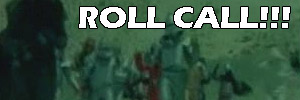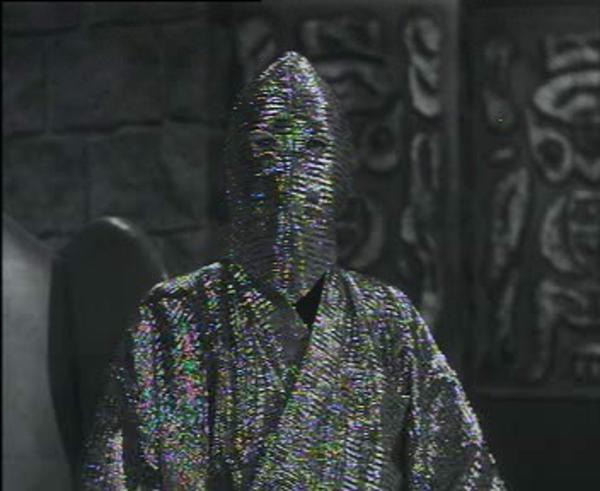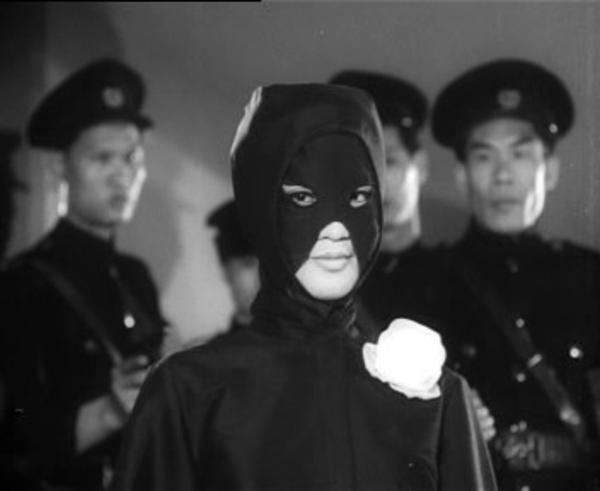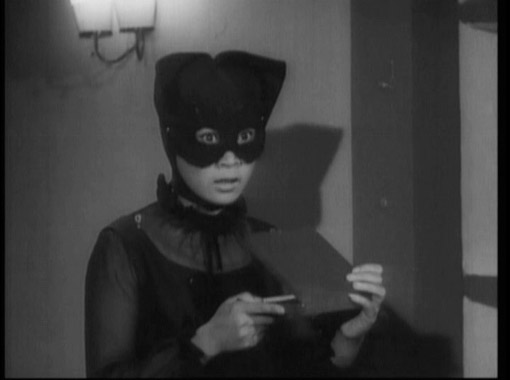The best part of the internet is running across films you never knew existed and suddenly have to have. So in a change of pace, we’ll be naming a bunch of films, some of which I have, some of which I am in search of, and some of which no longer exist or are just interesting to look at their poster art. To start with, we are going to go over some Jane Bond films, which is a subgenre from Cantonese cinema which mixes spies with costumed women who kick lots of men’s butts. All of these films look very interesting. The Jane Bond films are a product of the times, when female roles dominated Chinese cinema. There was a period when it was thought that men couldn’t lead movies because most of the theater audience was women. As James Bond influences came in, the Jane Bond films became the Eurospy of Asia. They were also the precursors to the Girls with Guns films that ran rampant in the late 80s and early 90s. As there now seems to be a mini-resurgence across Asia for female action (
Chocolate,
High Kick Girl,
Coweb) maybe Jane Bond will become a grandmother!
There are two main actresses you have to know if you want to watch Jane Bond films: Connie Chan Po-Chu and Josephine Siao Fong-Fong
Connie Chan Po-Chu is the daughter of two Cantonese Opera stars – Chan Fei Nung and Kung Fan Hung. She learned Cantonese Opera from her parents Peking Opera under master Fen Ju Hua and Cantonese Superstar Yam Kim Fai. This made her adept at both the Southern and Northern styles of martial arts and operas. She was one of the most popular actresses in the sixties with an impressive output, 32 films in 1967 alone. One of her nicknames was Movie Princess. She later retired from films in 1974. Go to the fan site Connie Chan Movie Fan Princess for more information than you can shake
Connie Chan’s main contemporary (the only other to approach her in star power) Josephine Siao Fong-Fong. She first appeared in 1954 and two years later won the Best Child Actor award for Orphan Girl. Like Connie Chan, she also had an impressive output in the 1960s, but in 1969 she slowed down her acting to focus on education and marriage (to actor Charlie Chin, which lasted three months – she later remarried and had children) She later appeared on TV as the bumbling plain Jane character Lam Ah Shun in 1977, followed by three films (one of them was Plain Jane to the Rescue, directed by a young John Woo). She is probably best known to fans from the 1990s for her parts as Fong Sai Yuk’s mother in the Fong Sai Yuk films.
More information on some of these films (and others) can be found in the Why SoftFilm Drives Me Crazy post and the SoftFilm blog.
There was even a film festival in Hong Kong featuring the Jane Bond genre, and that is where we will start out journey…
Jane Bond Film Festival
The Story of Wong Ang the Heroine

Director : Yam Pang-nin
Scr: Cheng Kang
Cast: Yu So-chau, Wu Lai-chu, Yam Yin
1960 B&W D Beta Cantonese 84mins
The pulp fiction series Oriole, the Flying Heroine, which originated in Shanghai in the 1940s and remained popular in Hong Kong in the 1960s, was a major influence on the Jane Bond films, its titled heroine a precursor of the quick-witted, fast-fisted, and good-hearted Jane. The Story of Wong Ang the Heroine, adapted from the series before Hollywood’s James Bond tidal wave, provides interesting study on the impact of the 007 craze on Hong Kong popular culture.
The modern film Silver Hawk (with Michelle Yeoh) also has an origin with these stories, based on the 1940’s comics of masked heroine Huang Ying (Wong Ngang)
Black Rose

Dir: Chor Yuen
Scr: Ho Pik-kin
Cast: Nam Hung, Connie Chan Po-chu, Patrick Tse Yin
1965 B&W Beta SP Cantonese 94min
Director Chor Yuen had always been eager and also skillful in incorporating Western influence in his work, and his introduction of James Bond elements into Black Rose likely kickstarted the Jane Bond genre. This was in turn thrown into the mix with the Cantonese cinema’s penchant for combining the relatively new Jade Girl phenomenon of Chinese cinema with the longtime tradition of xia dao, a Robin Hood-like figure who steals from the rich and gives to the poor. The film was a box-office success, spurning imitators that quickly materialized into a genre.
Reviewed on TarsTarkas.NET here
The classic of the genre, which had only one true sequel, Spy with My Face. There were many spinoffs involving the character that came along much later. A great retrospective of Black Rose and its sequels/spinoffs at The Illuminated Lantern
Spy with My Face

Dir: Chor Yuen
Scr: Poon Fan
Cast: Nam Hung, Patrick Tse Yin, Connie Chan Po-chu
1966 B&W + Colour D Beta Cantonese 102min
This sequel to Black Rose further sets the Jane Bond genre on its course. Director Chor Yuen, emboldened by the success of the original, takes the Bond influence up a notch. The arch villain is not just a crooked businessman, but the head of a powerful crime syndicate, lording over an army of thugs while headquartered in a secret hideout equipped with an endless array of high/low-tech devices. And Connie Chan Po-chu, with her embodiment of both the fairy Jade Girl and the fierce fighting woman, eclipses Nam Hung as the film’s true star, establishing herself as the Jane Bond prototype.
Reviewed on TarsTarkas.NET here
92 the Legendary la Rose Noire

Dir / Scr: Jeff Lau
Cast: Wong Wan-sze, Fung Bo-bo, Leung Ka-fai, Maggie Siu, Teresa Mo
1992 Colour 35mm Cantonese Chi&Eng Subtitles 95min
92 the Legendary la Rose Noire is not only a surprise hit when it was released in 1992 but also a phenomenon that defined its time. The film’s irreverent drama and director Jeff Lau’s genius in taking audience imagination through time and space captured the spirit of early 1990s Hong Kong and the then colony’s awkward awareness of its own history. And the way the film invests its dramatic capital on and draws mythical power from the character Black Rose is an illustration of how much the Jane Bond figure embodies the unique qualities that make Hong Kong what it was and what it is.
Three entries in the saga: 92 the Legendary la Rose Noire; Rose, Rose, I Love You; and Legendary La Rose Noire II (AKA Black Rose II) And the Twins movie Protege de la Rose Noire is another attempt to add on to the Black Rose mythos.
Overview in the Illuminated Lantern Entry listed above. I have recently gotten a copy of this for review, so hopefully it will show up here sometime this year.
The Dark Heroine Muk Lan-fa

Dir: Law Chi
Scr: Lau Ling-fung
Cast: Suet Nei, Kenneth Tsang Kong, Sek Kin
1966 B&W D.Beta Cantonese 105min
The Dark Heroine Muk Lan-fa is a popular series of pulp fiction in the 1960s. Written by the prolific martial arts author Ni Kuang, it is in many ways an update of the Shanghai originated Oriole, the Flying Heroine, more suited for the emerging metropolis that was Hong Kong. This cinematic update infuses Ni’s colourful plots with again Bond elements, from spy characters to secret hideouts to death-ray watches. The casting of Suet Nei instead of the obligatory Connie Chan Po-chu and Josephine Siao as the action woman in black tights represents a validation of the Jane Bond formula, which is proven to work here without the iconic superstars.
There are three films in the Dark Heroine series: The Dark Heroine Muk Lan-fa, The Dark Heroine Shattered the Black Dragon Gang, and Lady in Black Cracks the Gate of Hell. All three are available unsubtitled on VCD.
A great overview can be found at the Lucha Diaries site.
The Golden Buddha

Dir: Lo Wei
Scr: Shi Wei
Cast: Jeanette Lin Tsui, Paul Chang Chung, Lo Wei
1966 Colour D Beta Mandarin Chi & Eng Subtitles 102min
The Golden Buddha is a prime example of Shaw Brothers’ action offensive in the mid-1960s, with generous production budgets that allowed for explosive action sequences and locations filming in Thailand to add a touch of international exoticism. Bond influence is evident in every turn, but the film’s unbridled machismo differs greatly from the women-centered sensibilities of Spy with My Face, which was released the same year on the Cantonese front.
A shaw brother entry and an answer to the James Bond films, complete with crazy villains, evil lairs, and gadgets. I got a copy of this one and hopefully will be able to go over it soon.
The Precious Mirror (aka The Maiden Thief)

Dir: Chor Yuen
Scr: Szeto On
Cast: Josephine Siao, Lui Kay, Leung Sing-po, Lee Hong-kum
1967 B&W D Beta Cantonese 94min
Jane Bonds almost always lead comfortable middle-class lifestyles, complete with all the Westernized trimmings. How do they pay for it? The answer is simple: by stealing. Because of Hong Kong cinema’s mandate to avoid politics, the Jane Bond film often takes on the flavour of jewel theft films, its moral ambiguity justified by the heroine’s Robin Hood-like exploits. The Precious Mirror is one of the genre’s better films, largely due to director Chor Yuen’s delicate touch in blending comedy with action and Josephine Siao’s wonderfully natural performance.
The Mysterious Sisters (aka Two Sisters Who Steal)

Dir: Ng Wui
Scr: Man Min
Cast: Suet Nei, Woo Fung, Fung Bo-bo, Sek Kin
1969 Colour 16mm Cantonese 97min
As the Jane Bond films evolved, the genre became less Bond-like, cutting down on the staging of fights and the flaunting of secret weapons. The heroine remained an action figure, complete with quick wits and agile prowess, but the stories increasingly took on the jewel theft plot. The Mysterious Sisters is especially noteworthy, in director Ng Wui rendering of the theft in the classic French film Rififi, with long stretches of action that unfold without dialogue.
Temptress of a Thousand Faces

Dir: Chung Chang-hwa
Scr: Sung Kim
Cast: Tina Chin Fei, Pat Ting Hung, Chen Liang
1969 Colour D Beta Mandarin Chi & Eng Subtitles 77min
The Mandarin cinema’s action offensive in the mid-1960s successfully captured the fancy of male audience and its spy flicks are more male-oriented than their Cantonese counterparts. The Jane Bond figure of Temptress of a Thousand Faces is a cop with all the requisite trimmings, yet she is regularly paraded in situations that highlight actress Tina Chin Fei’s sexuality, the most obvious of which is when she has to climb down the side of a 17-storey high-rise, wearing a revealing miniskirt.
Another film with a great review at Lucha Diaries. I have a copy as well that is on my ever-increasing pile of films to watch.
Other Films:
She Is Our Senior
1967
Director: Chan Lit-ban
Cast: Connie Chan, Kenneth Tsang Kong, Law Oi-seung

Another good review from Todd of the Lucha Diaries, this time at Connie Chan Fan Movie Princess site.
Lady Black Cat (1966) and Lady Black Cat Strikes Again (1967)
Despite being sequels, the films feature different characters even though the plot follows roughly the same progression and most of the actors are the same. Lady Black Cat steals from the rich and helps the poor, all while being a swinging 1960’s Chinese girl.
Hey, let’s link to our review of Lady Black Cat, because I am all about self-pimpage!
The Blonde Hair Monster (1962)

Director: Wong Fung
Cast: Connie Chan, Yu So-chow, Tso Tat-wah, Sek Kin
Great review with lots of pictures at Connie Chan: Movie-Fan Princess
The Lady Killer aka The Batgirl
Starring Josephine Siao
Pictures at the Soft Film blog here and here. Unfortunately, this film is believed lost.
Blue Falcon
1968
Starring Josephine Siao
Another lost film, pictures from the webmaster of Soft Film are at the Die, Danger Die, Die, Kill blog.
Lady Bond aka Chivalrous Girl
1966
starring: Connie Chan
The Lady Bond series is the answer to James Bond. None of the films are available on DVD as of this writing.
There are three followups in this series
The Return of Lady Bond gives us this song:
The Flying Killer
Directed by Mok Hon-si
Starring Connie Chan Po-chu, Lydia Shum Din-ha and Sek Kin
Another entry in the Lady Bond series. Review
Lady in Distress: The Invincible Fighter (1967)
director Mok Hong-See
starring Connie Chan Po-Chu, Lui Kei, Tam Bing-Man, Sek Kin, Yue Ming
Another film in the Lady Bond series


SoftFilm let’s us know about a few more films starring So Ching
So Ching made four Jane Bond films for Mingxing film company:
Gold Button (1966), The Golden Gun (1966), The White Swan (1967), and Pink Bomb (1967)
All four films co-starred Cantonese cinema’s all-purpose leading man Wu Fung, Fanny Fan (who had just reignited her sex bomb image in Shaw Brothers’ The Golden Buddha), and Cathay hunk Roy Chiao Hung (who was branching out into Cantonese films).

So Ching in Gold Button (1966)
So Ching also starred in the non-Jane Bond films The Golden Bat (1966) and Return of the Golden Bat (1966)

These are not all of the Jane Bond films, just a nice overview. I don’t know if there is a comprehensive guide to them out there. But pieces are being put together here and there, and as more films show up on vcd or DVD a more complete picture of the surviving films can be shown.

![]()






































